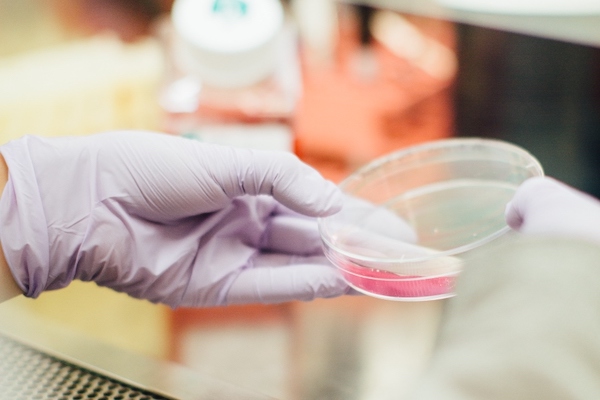Donating your eggs, sperm or embryos to someone else to help them conceive a child is an incredible thing to do.
This guide steers you through what you need to know about UK law.
How does UK law work if I donate through a licensed fertility clinic?
If you donate through a licensed clinic in the UK, the clinic will follow rules set down by the law and by the Human Fertilisation and Embryology Authority which provides its licence. This includes screening requirements, a cap on the number of families who can use you as their donor, and a cap on the amount you can be paid to cover your expenses. You can set conditions as to how your eggs, sperm or embryos can be used, and a fertility clinic must comply with those conditions.
You will not normally meet the recipients of your donation if you donate through a UK fertility clinic, but you will be an ‘identifiable’ donor. That means that information about you, and the outcome of any treatment using your eggs, sperm or embryos, will be kept on the HFEA’s Register of Information. You have a legal right to ask whether any children were conceived as a result of your donation (and if so their sex and year of birth) but you do not have any right to contact your offspring or their parents. The children conceived with your eggs, sperm or embryos can access information about you from the register (although identifying information about you will not currently be released until they are over 18). It can be very important to donor-conceived people and their families to have good quality information, so you should take care over the information you provide and any pen sketch or goodwill message you write.
Find out more about how UK law regulates donor conception at fertility clinics.
How does UK law work if I am a sperm donor donating through home insemination?
If you are a sperm donor donating via home insemination, these rules do not apply. There is no cap on how many families you may donate to and no screening requirements, so you should take your own responsible steps to ensure you are donating safely and limiting the numbers of children being conceived. You will of course also need to meet the recipients of your donation in order to make arrangements for home insemination, whether or not you plan to play a role in the child’s life.
There is also no formal record-keeping of the donation so, unless you plan to be a known donor with ongoing involvement, you will need to think through carefully what arrangements you make to allow any child you help to conceive to have information about you or to contact you in the future. Do bear in mind that modern direct-to-consumer DNA testing websites are enabling donor-conceived people to identify their donors and make contact, even if that was never planned.
I want to be a known donor. How does the law work then?
A known donor is a donor who donates to recipients on a known basis and with the intention of being known to the child from an early age (rather than through a fertility clinic or sperm or egg bank where they don’t meet). The role you play in practice as the child grows up could fall anywhere across a broad spectrum: you might just be available to any child conceived if they have questions about you, or you might be a much more involved and significant figure in their life.
It is important that you and your recipient/s ensure you have matched expectations, and it is sensible to prepare a pre-conception agreement to clarify and record what you have agreed. It is also important to understand what legal status you will have.
Find out more about known donation arrangements and UK law.
I am planning to be a co-parent. How does UK law work?
If you are planning to be a co-parent rather than a donor – i.e. to be fully involved in your child’s life as a parent, with shared responsibility with his or her other parent/s – then it is important to understand what your legal status will be, as well as how to set up the arrangement with the strongest foundations. Find out more about co-parenting arrangements and UK law.
Will I be a legal parent? Is there any risk of financial exposure?
If you are donating your eggs to someone else and do not carry the pregnancy, you will not be a legal parent of any child conceived.
If you are donating sperm, the position is more complicated and whether you are the legal father will depend on the circumstances. This is important from a legal perspective, since if you are not your child’s legal father then no financial claims could be made against you or your estate if you died, but if you are your child’s legal father, then such claims are possible, irrespective of whether you are recorded on the child’s birth certificate.
You will not be the legal father if either:
- you donate to someone you don’t know via a UK licensed fertility clinic and sign all the appropriate consent forms to become a sperm donor, or
- you donate to recipients who are a couple and are both the legal parents.
In other circumstances (including home insemination to single mothers or recipient parents who are unmarried, and possibly known donation via a fertility clinic depending on the circumstances) you will the child’s legal father.
Find out more about legal parenthood after donor conception.
What are my rights in relation to any donated eggs, sperm or embryos which remain in storage?
If your sperm, eggs or embryos are stored at a fertility clinic in the UK, they will be subject to the rules on storage set by the law and the Human Fertilisation and Embryology Authority. You retain a right of consent all the way up until they are transferred to a recipient so can withdraw or vary your consent to their use in treatment at any time.
Find out more about your rights in relation to stored eggs, sperm or embryos.
The UK’s leading conception lawyers
Find out more about how we support those creating families
Related articles

Legal parenthood after donor conception and assisted reproduction
Where children are conceived through artificial insemination or the transfer of an embryo, the Human Fertilisation and Embryology Act 2008 dictates….

UK law for stored eggs, sperm or embryos
The Human Fertilisation and Embryology Authority was set up in 1991 and comprises members who are clinicians, researchers or fertility/embryology…

Known donation arrangements (UK law)
Known donation arrangements cover a wide range of different personal circumstnaces. In some cases a known egg, sperm or embryo donor is a relative, friend or someone else…
